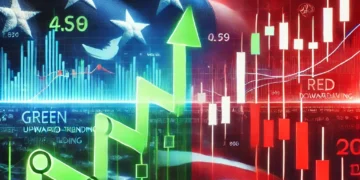U.S. Presidential Election: Potential Market Impacts
As the U.S. presidential election unfolds on November 5, 2024, investors worldwide are closely monitoring its potential effects on financial markets. The contest between Republican nominee Donald Trump and Democratic nominee Kamala Harris introduces uncertainties that could influence market dynamics in various ways.
Market Volatility and Investor Sentiment
Elections often lead to increased market volatility due to policy uncertainties. Key factors include:
Policy Divergence: Trump’s focus on protectionist trade policies contrasts with Harris’s emphasis on renewable energy and social programs.
Economic Indicators: Conflicting economic signals, such as GDP growth and inflation rates, add to market unpredictability.
Sector-Specific Impacts
Different sectors may experience varied effects based on the election outcome:
Energy: A Trump victory could benefit traditional energy sectors, while a Harris win might boost renewable energy investments.
Healthcare: Policy changes under either administration could significantly impact healthcare stocks, depending on regulatory approaches.
Historical Market Performance
Historically, U.S. stocks have averaged returns of 9.1% in election years.
However, past performance doesn’t guarantee future results, especially given current economic complexities.
Global Market Considerations
The election’s outcome may also affect global markets:
Trade Relations: Trump’s trade policies could lead to increased tariffs, impacting international trade dynamics.
Currency Fluctuations: The U.S. dollar’s strength may vary based on the election result, influencing global currency markets.
Conclusion
The 2024 U.S. presidential election presents potential risks and opportunities for investors. Staying informed and considering diversified investment strategies can help navigate the uncertainties ahead.
























